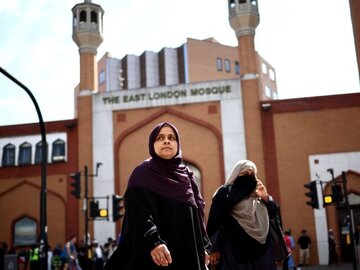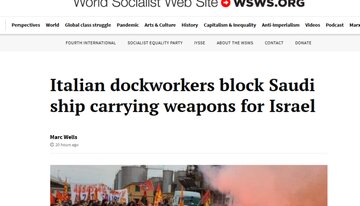AhlulBayt News Agency (ABNA): Tehran’s ambassador to Moscow has voiced Iran’s opposition to a controversial plan by the United Kingdom to increase its stockpile of atomic weapons, saying any nuclear technology should serve the concept of atoms for peace.
During an interview with Russia’s Sputnik news agency published Friday, Kazem Jalali was asked about London’s decision to reverse a previous commitment to reduce its nuclear stockpile under the pretext of countering what it calls threats from Russia and China.
Following a review of foreign policy, London announced on March 16 that it planned to increase its nuclear warhead stockpile and boost alliances with Asian allies. The review urges the UK to increase its cap on warheads from 180 to 260 by the middle of the decade.
Jalali said that in line with the philosophy of the Treaty on the Non-Proliferation of Nuclear Weapons, to which Britain is a signatory, “nuclear weapons should be reduced and nuclear technologies should be developed within the atoms for peace concept.”
“The Islamic Republic of Iran develops its nuclear energy for peaceful purposes, and we do not agree with the buildup of any nuclear weapons,” the Iranian diplomat added.
While delivering a defense of his administration’s plan, UK Prime Minister Borris Johnson claimed Iran was trying to acquire a nuclear weapon, prompting a strong condemnation from Iranian Foreign Minister Mohammad Javad Zarif, who slammed London for “utter hypocrisy” on the issue of nuclear non-proliferation.
Following in America’s footsteps, the UK has long been accusing Iran of seeking to acquire nuclear arms, using that claim as a pretext to help the US step up its economic sanctions against the Islamic Republic.
This is while Iran proved the peaceful nature of its nuclear program in 2015 by signing an agreement with six major world states, including Britain.
Unlike Britain, Iran has repeatedly said in its own articulation of foreign policy that it will fully abide by a fatwa (religious decree) issued by Leader of the Islamic Revolution Ayatollah Seyyed Ali Khamenei, which bans the production, possession and stockpiling of nuclear arms, among other internationally-banned weapons of mass destruction.
Elsewhere in the interview, Jalali once again reaffirmed Tehran’s firm position on the future of the multilateral nuclear agreement, which the US abandoned in May 2018 in violation of Resolution 2231 of the UN Security Council.
Following its much-criticized exit, the US under ex-president Donald Trump re-imposed the anti-Iran sanctions lifted by the accord and sought to cripple the Iranian economy by devising additional bans.
With a change of administration in the US, Washington under President Joe Biden has claimed it wants to rejoin the deal, but it has so far failed to meet Iran’s conditions for the US to regain the right to return.
Tehran says the US must lift all the Trump-era sanctions before returning to the agreement, officially called the Joint Comprehensive Plan of Action (JCPOA). It has also assured all the deal parties that if the US takes that step, Iran will reverse all the countermeasures it has been taking under Article 36 of the accord.
In the interview, Jalali dismissed the recent remarks by US Secretary of State Antony Blinken, who urged Iran to show “readiness” for cooperation on the JCPOA earlier this week and said the “ball is really in their (Iranians’) court.”
“I think this is an ill-considered statement, as it was the US who withdrew from the JCPOA, Iran never left the JCPOA,” Jalali said. “It is logical that the one who left the international agreement... must resume compliance with its obligations.”
The diplomat said the Biden administration “cannot hide behind its beautiful words and abscond from fulfilling its obligations.”
“They must understand that the ‘maximum pressure’ policy has failed,” Jalali said, referring to the campaign of harsh economic pressure and threats that Trump initiated against Iran after pulling the US out of the JCPOA.
The Biden administration has so far chosen to stick with the pressure policy, despite criticism of Trump.
/129
27 March 2021 - 07:46
News ID: 1126733

Tehran’s ambassador to Moscow has voiced Iran’s opposition to a controversial plan by the United Kingdom to increase its stockpile of atomic weapons, saying any nuclear technology should serve the concept of atoms for peace.




